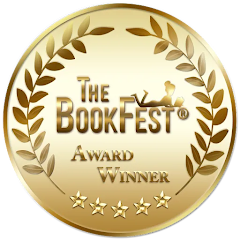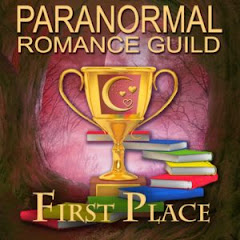Did you have a happy childhood? This is a difficult question to answer. I had my share of happy times when I was growing up. Small-town life seems idyllic in my memory, riding bikes with friends anywhere in town at any time of day, with no worries. Fishing in the creek that ran through town. Neighborhood games of kick-the-can after dark. The light coming from the windows of the houses, where our parents sat watching TV, gave us a sense of security.
But my childhood was also clouded by the reality of my mother’s illness, early onset Parkinson’s Disease, and her subsequent addiction to Seconal. This was a time before barbiturates were replaced in common treatment by benzodiazepines. So from about my ninth year, I was the child of a missing mother, present in body but absent in mind and emotion. My father, who had planned carefully for a retirement in which he and his wife could travel and enjoy their sunset years, became embittered, and as an only child, I was the most available object of his anger. I retreated into books and later sports, staying away from home as much as possible. Since my mother’s death, when I was in my twenties, I have visited my father as infrequently as possible.
Where do you live now and what do you do for a living? I live and work in Sanderson, Arkansas, a small town of about fifteen thousand people in the northwest corner of the state. I’m an English professor at Mid-South Methodist University, a socially and politically conservative school with a deep religious background. The school has about fifteen hundred undergraduate students and three hundred graduate students. I’m one of only a handful of truly liberal faculty members at the university. It is an uncomfortable fit, but I and my progressive colleagues feel we serve an important role by giving students an alternative view of the world and a place to explore more open ideas. There are those students, faculty, and staff, however, who feel we do not belong here.
Is there something you'd rather be doing? Most days there is nothing I like better than teaching in a college classroom. It’s a stimulating way to spend your days. But it’s also an emotional rollercoaster. When classes go well, I’m higher than a kite. When classes are dead, I feel like crawling back to the office. On those days, I’d rather be brewing beer.
What's going on in your life right now? Not long ago, I would have said my life was perfect. Then I received an anonymous death threat. I thought it was a joke. Then one evening I was attacked in the parking lot of the campus cathedral. The police have been unable to find any leads. I’m having trouble believing that someone would really kill me because of my beliefs. It has to be some kind of mistake.
Is there someone special in your life? My wife Susan. She’s beautiful, with short brown hair that tucks behind her ears, milk chocolate brown eyes, and a way of raising one eyebrow when she smiles her crooked smile that stops me in my tracks. She has a very successful screen printing business she started when she was in high school. She makes more money than I do as a professor. She is also the founder and director of the Mandala Peace Center.
How did you meet? We met in college. A friend of mine invited me to go to a peace rally because that’s where we could meet girls. And that’s where I met Susan. We went to a little coffee shop after the rally and talked until late in the night. I had never dreamed of being a peace activist. I got involved just to be around Susan. But I have become a committed activist, working mostly in peace and environmental movements. My support of liberal social positions is what gets me in trouble with conservative people at the college.
What's his/her family like? Her father is a Pentecostal preacher, the hellfire and brimstone variety, about as stern an old rooster as you would ever want to meet. He forbid Susan to see me after we met. Susan and I continued to see each other at school and even spent a few weekends together at a small resort town not far from campus. When we graduated from college, we eloped, and she was not reconciled to her parents until our first son, Billy, was born three years later.
What's keeping you two apart? Susan likes decisiveness, the ability to make a decision and to act on it. To her, personal confrontation is just something you deal with. One of those things about which you make decisions and then act. I manage personal conflict by procrastination. I avoid it, avoid acting on it. This frustrates Susan and has been an ever-present source of conflict between us.
What one thing could you do that would make you feel like the relationship will work out? In Susan’s eyes, I must act decisively in this problem of the threat to my life. In her eyes, I should have gone to the police as soon as I got the note. I kept putting it off until I was actually attacked. Action is, I think, the only thing that will satisfy Susan. But it may be too late for that. Even if I could go back and do it all over, I’m not sure anything would change. If indeed someone is trying to kill me, I know I have to be ready to act. But I have no idea what that will look like.
Any last comments? More than anything else, I want my old life back. But I can see that will never happen. If I survive, nothing will be the same.
Coming Soon from: The Wild Rose Press
http://catalog.thewildrosepress.com/all-titles/4887-sacrificial-lam.html
http://catalog.thewildrosepress.com/all-titles/4887-sacrificial-lam.html
When English professor Lam Corso
receives a death threat at work, he laughs it off. A liberal activist at
a small Southern conservative college, he's used to stirring up controversy on
campus. It's just part of the give and take of life. Even when
violently attacked, Lam is convinced it must be a mistake. He can't
imagine anyone who would want to kill him for his beliefs.
When his
home is broken into and his wife's business vandalized, Lam is forced to face
the truth. His wife—a passionate anti-gun crusader—is outraged when Lam brings
a gun into the house for protection. The police can't find a single lead.
Left to their own devices, Lam and Susan are forced to examine their marriage,
faith, and values in the face of a carefully targeted attack from an assailant
spurred into action by his own set of beliefs.
What will
it cost to survive?
Excerpt
When he dropped Lam back to the pavement, he said, “You dodged a bullet Friday afternoon. My bad. But I won’t miss this time.” And then the attacker stepped away and waited, breathing hard.Another shock of fear and clarity ran through Lam. The car had been trying to kill him. He’d been a fool. He thought of Susan, sitting with the boys on the sofa, watching TV and sipping a glass of wine. He couldn’t let go of her, he couldn’t bear to leave her and the boys, lying there in an empty parking lot. It wasn’t supposed to be this way. He had imagined dying hundreds of times—cancer, car wreck, drowning, plane crash—but never this, beaten to death by a lunatic who didn’t like his politics.A desperate sound, short, high, and strained, broke from him. Blind without his glasses in the dark, he was helpless, but he refused to lie there and be killed without a fight. He tried again to stand. But as he struggled to his knees, a blow to the side of his head sent him sprawling against the bike rack, and he thought he was passing out.The voice came again, “Time’s up, Lambert.”When Lam looked up, the man stood above him with something, a knife Lam thought, in his hand.The voice said, “You were warned.”
Author
bio Gary Guinn’s great, great
grandfather moved his family to northern Arkansas from Kentucky after the Civil
War. They have lived there ever since. Guinn lives in Siloam Springs,
Arkansas, with his wife, Mary Ann, and their lab mix, Seamus, and their Corgi
mix, Peanut. He is retired from teaching writing and literature at John Brown
University. His first
novel, A Late Flooding Thaw, was published by Moon Lake Publishing in
2005. His second novel, Sacrificial Lam, was
published by The Wild Rose Press on March 3, 2017. His poetry and fiction have
appeared in a variety of magazines, a few of which are The Midwest Poetry Review, Carve, in
which his story was a finalist for the Raymond Carver Prize, The Bryant Literary Review, Ghoti, and Elder Mountain: a Journal of Ozark Studies.
His short fiction has appeared in several anthologies, the most recent being Yonder Mountain, from the University of
Arkansas Press. His favourite pastimes are reading, writing, traveling, and
brewing beer (and of course, drinking it).
Author
links:
Webpage: http://garyguinn.com
Facebook author page: https://www.facebook.com/garyguinnwriter/
Goodreads author page: https://www.goodreads.com/author/show/585203.Gary_Guinn
Twitter: https://twitter.com/gmguinn
Giveaway: Enter to win a signed
copy http://gvwy.io/46kqj5b


















































Wow. Talk about writing what you know. Stay safe, because I'll want to read the sequel, too. Ordered my copy!
ReplyDeleteGoodness, what a wonderful interview! I was reading along, talking to Lam (as a retired English teacher, etc.) commiserating with him. LOL. Good job Gary. And congratulations on the poetry and the Raymond Carver final. I'm looking forward to reading your book. Best of luck with it.
ReplyDeleteWonderful interview with Lam! Enjoyed it tremendously. Wishing you all the best Gary!
ReplyDeleteThis comment has been removed by a blog administrator.
ReplyDelete